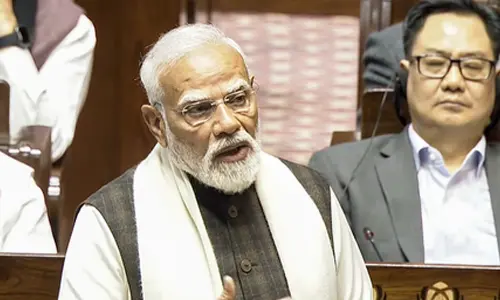Limiting mealtimes increases motivation for exercise: Study

Limiting access to food might increase levels of hormone - ghrelin, which might also increase your motivation to exercise, said a new research.
Tokyo: Limiting access to food might increase levels of the hormone - ghrelin, which might also increase your motivation to exercise, said a new research.
The study, published in the Journal of Endocrinology suggested that a surge in levels of the appetite-promoting hormone - ghrelin, after a period of fasting prompted mice to initiate voluntary exercise.
These novel findings indicate that better diet control, for example limiting food intake to mealtimes or fasting intermittently, could help overweight people maintain a more effective exercise routine, lose weight and avoid debilitating complications such as diabetes and heart disease.
"Our findings suggest that hunger, which promotes ghrelin production, may also be involved in increasing motivation for voluntary exercise when feeding is limited," said author Yuji Tajiri from the Kurume University in Japan.
"Therefore, maintaining a healthy eating routine, with regular mealtimes or fasting, could also encourage motivation for exercise in overweight people," Tajiri said.
Ghrelin, often referred to as the 'hunger hormone', stimulates appetite through actions on the brain reward circuitry that increases motivation to eat.
It has also been reported to be essential for endurance exercise by increasing metabolism to meet the energy demands of prolonged exercise.
Although previous studies have suggested a relationship between ghrelin and exercise, it was not known whether the hormone levels have a direct effect on motivation to exercise.
In this study, the research team investigated the relationship between exercise and the hormone levels in mice.
Food intake and wheel-running activity were compared in mice given free access to food with those fed only twice a day for a limited time.
Although both groups ate a similar amount of food, the restricted mice ran significantly more.
Mice genetically altered to have no ghrelin and on the restricted feeding diet, ran less than the mice which were given free access, however, this could be reversed by administering the hormone.
Furthermore, mice were given free access to food and given ghrelin also ran significantly more.
These findings suggest that ghrelin might play an important role in the motivation for both feeding and exercise, in response to restricted eating plans.















